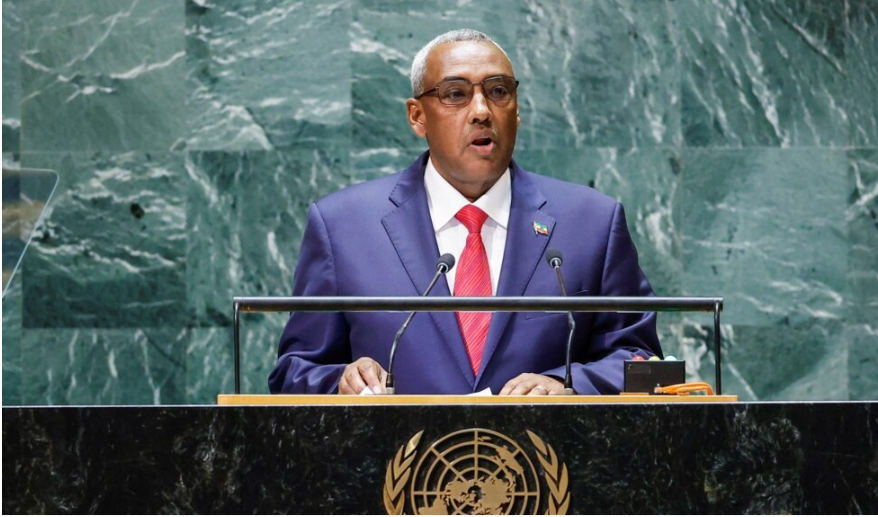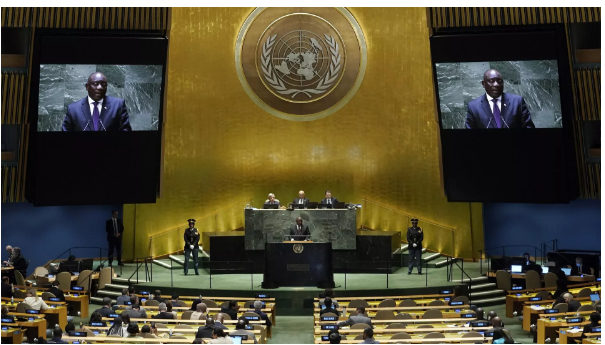 At the 79th session of the United Nations General Assembly in New York, African leaders took center stage, addressing global security, economic challenges, and climate change, while calling for greater representation in international decision-making bodies. With Africa increasingly becoming a focal point in global discussions, issues such as conflict, debt relief, and sustainable development dominated the speeches of many African heads of state.
At the 79th session of the United Nations General Assembly in New York, African leaders took center stage, addressing global security, economic challenges, and climate change, while calling for greater representation in international decision-making bodies. With Africa increasingly becoming a focal point in global discussions, issues such as conflict, debt relief, and sustainable development dominated the speeches of many African heads of state.
One of the most pressing topics was the ongoing conflict in Sudan, where a civil war between the Sudanese Armed Forces and the Rapid Support Forces has led to a catastrophic humanitarian crisis. Speaking at the General Assembly, Sudanese diplomats pleaded for international support to facilitate peace talks and deliver aid to millions of displaced civilians. The conflict, which erupted in April 2023, has threatened to destabilize the entire region, with neighboring countries like Chad and South Sudan also dealing with refugee influxes.
Similarly, Niger’s political crisis, following the July 2023 military coup, has become a major point of discussion. West African leaders, including Nigeria’s President Bola Tinubu, expressed concern over the growing trend of military takeovers in the region. Tinubu, who also serves as the chairman of the Economic Community of West African States (ECOWAS), urged global powers to support regional efforts aimed at restoring constitutional rule in Niger, while emphasizing the need for stronger democratic governance across the continent.
In addition to security concerns, economic challenges were also high on the agenda. Several African leaders, including Kenya’s President William Ruto and South Africa’s President Cyril Ramaphosa, called for comprehensive reforms to the global financial architecture. They argued that the current international financial system disproportionately disadvantages developing nations, making it difficult for African countries to access credit and manage mounting debt.
We cannot continue to be on the margins of the global financial system. Africa is home to many of the world’s fastest-growing economies, yet we are often excluded from critical decisions that shape our economic future, President Ruto said, calling for Africa’s inclusion in the G20 and reforms to the International Monetary Fund (IMF) and World Bank structures.
Climate change was another critical issue, with leaders like Gabon’s President Ali Bongo Ondimba emphasizing the disproportionate impact of environmental degradation on Africa. As one of the world’s leading custodians of the rainforest, Gabon has been at the forefront of climate advocacy. President Bongo urged developed nations to fulfill their financial commitments to combat climate change, noting that Africa contributes the least to global emissions yet suffers the most from its consequences.
 In response to Africa’s environmental challenges, international donors pledged additional funds to help African nations transition to greener energy. However, African leaders stressed that such contributions must be consistent and focused on long-term sustainability.
In response to Africa’s environmental challenges, international donors pledged additional funds to help African nations transition to greener energy. However, African leaders stressed that such contributions must be consistent and focused on long-term sustainability.
Meanwhile, African representatives renewed calls for permanent representation on the UN Security Council, a longstanding demand that reflects the continent’s growing geopolitical importance. Many African leaders argued that without a permanent seat, the continent remains underrepresented in global security decisions, despite being home to 54 nations and a rapidly growing population.
With the African Continental Free Trade Area (AfCFTA) now in its operational phase, there is growing optimism about Africa’s economic future. Leaders called on the international community to support the trade bloc, which is set to become the world’s largest free trade area by population. The AfCFTA is expected to boost intra-African trade, enhance industrialization, and create millions of jobs, though challenges related to infrastructure and investment remain.
As the UN General Assembly concludes, the participation of African leaders highlighted the continent’s evolving role on the global stage. From security crises to economic reform and climate advocacy, Africa is increasingly asserting its voice in international affairs, pushing for greater inclusion, and calling for action on the challenges that will shape its future. The world is now watching to see how these calls will translate into tangible outcomes in the months and years ahead.
Ennywealth


